
Caring for the Caregivers of TBI Patients
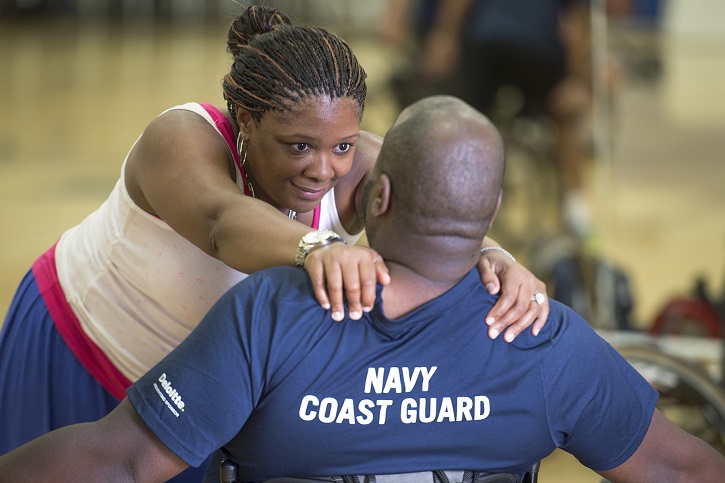
Shundra Johnson, left, gives encouragement to her husband Coast Guard Lt. Sancho Johnson during the Navy’s wounded warrior training camp for the 2015 DoD Warrior Games in Port Hueneme, Calif., May 29, 2015. Shundra is also her husband’s caregiver. (DoD News photo by EJ Hersom)
Many service members and veterans who experience traumatic brain injuries recover completely, but some endure chronic problems for years that require extended caregiving—usually from family members such as spouses or parents. Now, a first-of-a-kind tool developed by the Defense and Veterans Brain Injury Center could allow health care providers to assess the burdens on caregivers and develop treatments to meet their needs.
Working with federal and academic partners, DVBIC developed the Traumatic Brain Injury Caregiver Quality of Life measurement tool, known as TBI-CareQOL. The tool assesses how caregivers feel about loss of self-identity, or whether they feel trapped or anxious or stressed. The tool “will give researchers and clinicians some real insight into, and ability to measure impact, of TBI caregiving on the family member,” said Johanna Smith, a DVBIC program analyst.
The tool is currently in use as part of a congressionally-mandated study, known as the “15-year study”, following a group of caregivers of service members and veterans with TBI injuries. DVBIC supports this long-term project, which is taking place at the Walter Reed National Military Medical Center.
The new tool builds on the National Institutes of Health-funded “Patient-Reported Outcomes Measurement Information System,” known as PROMIS, which measures health-related quality of life indicators.
DVBIC’s new tool was shown to be a reliable and valid instrument for measuring quality of life. In the future, the tool could help identify caregivers who need rest from their responsibilities or who are at-risk for developing mental and physical health difficulties.
As Smith pointed out, “Caring for the caregiver allows for better care of our service members and veterans.”
DVBIC’s A Head for the Future initiative has chronicled some of the challenges caregivers face, and how they can avoid burn out. As the caregiver husband of a Coast Guard veteran who sustained a TBI, Jason Courneen said, “Every day is different. I remember my limits and take breaks as needed so that I can center myself and be the best husband, dad, and caregiver possible.” To get a break from caring for his wife Alexis, he exercises regularly by running, mountain biking, and skiing.
Lisa Colella, who takes care of her Marine veteran husband Rick, said, “I also take walks, set aside time to be social, schedule routine physical and mental health checkups, take classes available for caregivers, and exercise.”
These stories provide vivid examples of resilience when dealing with TBI. But more research is needed to ensure that all caregivers have needed support services.
Find additional resources on caregiver support on the DVBIC website.
Female, male service members, veterans recover from concussion differently
Article
3/6/2020
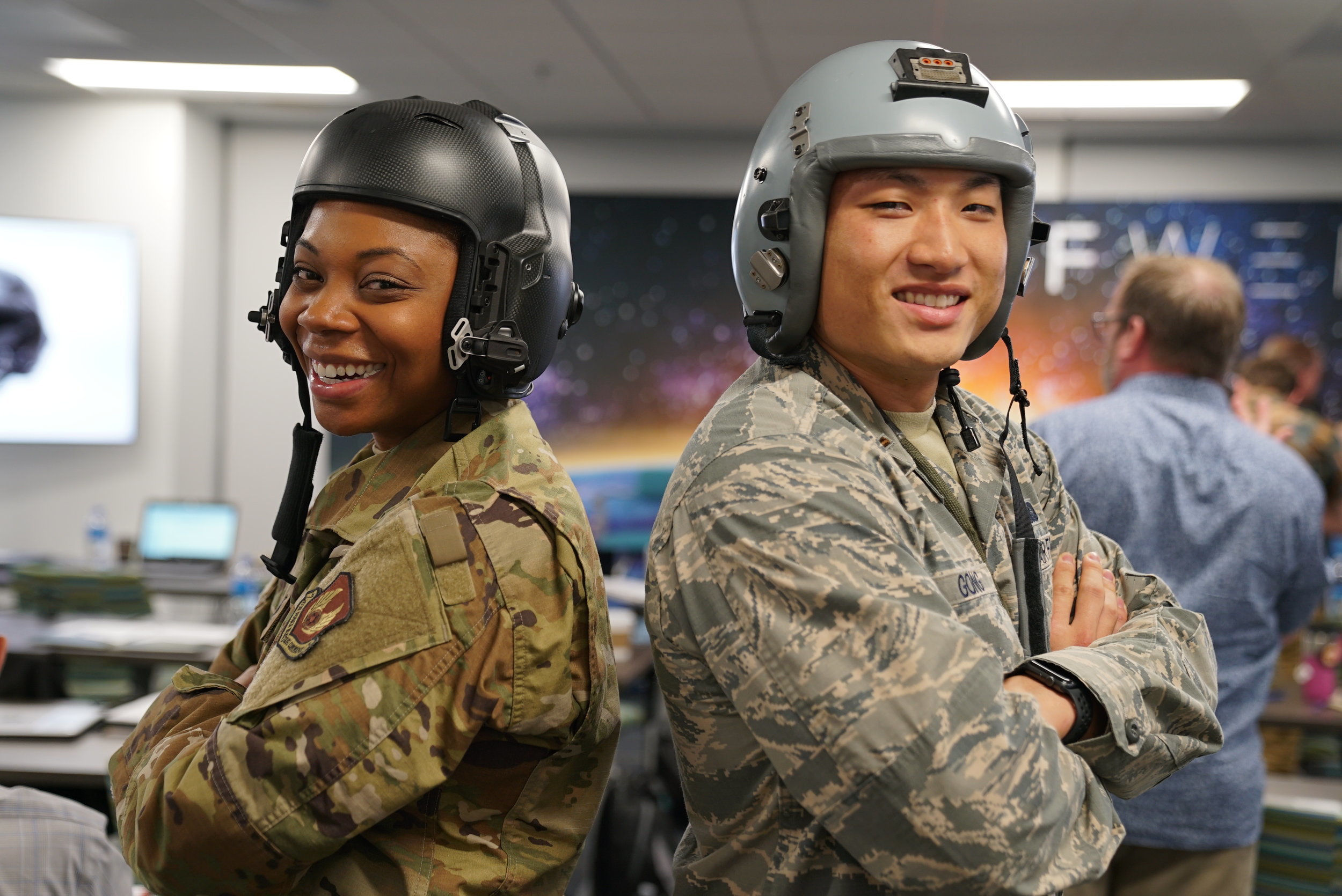
Female veterans may have a harder time performing some mental tasks after a mild traumatic brain injury or concussion
Brain Injury Awareness Month raises awareness of TBI in the military
Article
3/2/2020
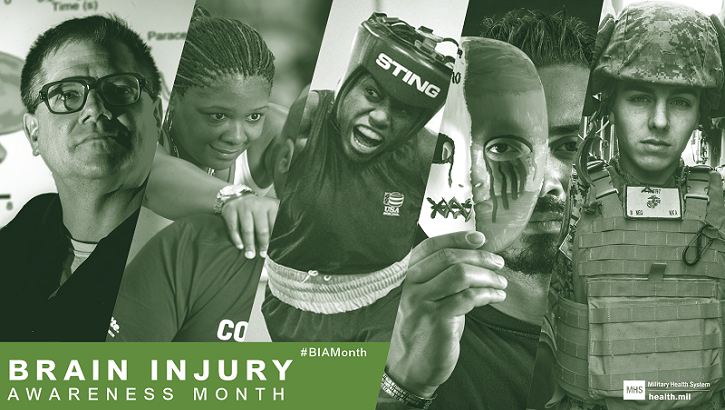
A division of the Defense Health Agency Research and Development Directorate, DVBIC is the DoD’s TBI center of excellence
Joint Staff doctor explains TBI diagnosis procedures
Article
2/26/2020
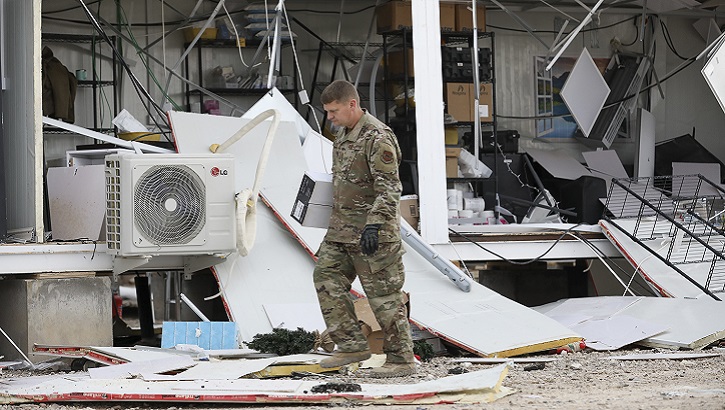
A TBI takes time to diagnose, and the process is involved
Positive attitude, social support may promote TBI/PTSD resilience
Article
7/23/2019
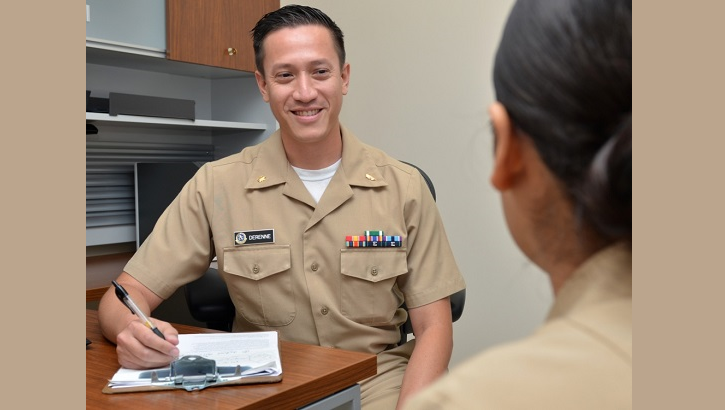
Psychological experiences prior to an injury may play a role in recovery
Warm Handoff for Transitioning Servicemembers Suffering from PTSD and TBI
Congressional Testimony
7/8/2019
S. 2987, SASC Report for FY 2019, 115-262, Pg. 203-204
New clinical recommendations on cognitive rehabilitation for TBI released
Article
6/24/2019
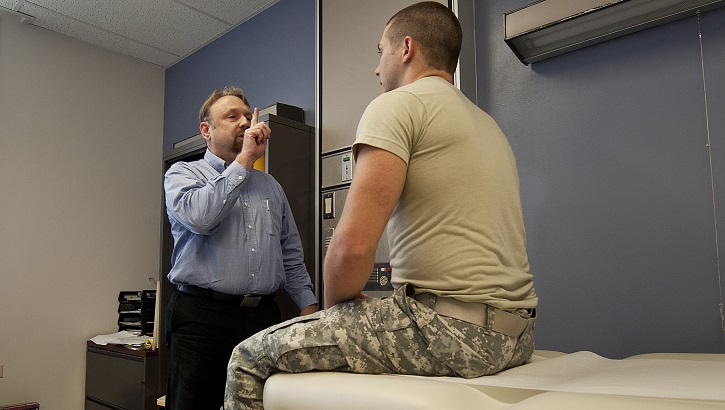
Cognitive rehabilitation focuses on improving thinking and communication skills
Chronic Traumatic Encephalopathy (CTE)
Congressional Testimony
6/13/2019
H.R. 5515 HASC Report for FY 2019 115-676, Pg. 128
Medical museum features mask-making arts therapy exhibit
Article
4/5/2019
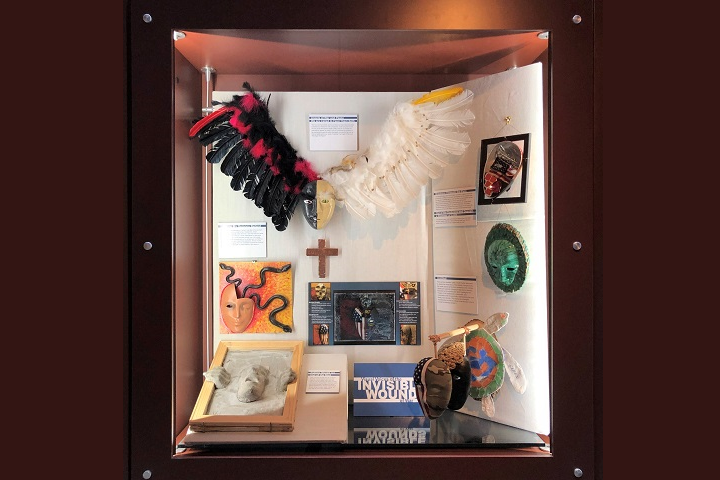
The exhibit explores the psychosocial environment of patients with TBI
Emerging technology improves ability to see ‘invisible’ wounds
Article
3/29/2019
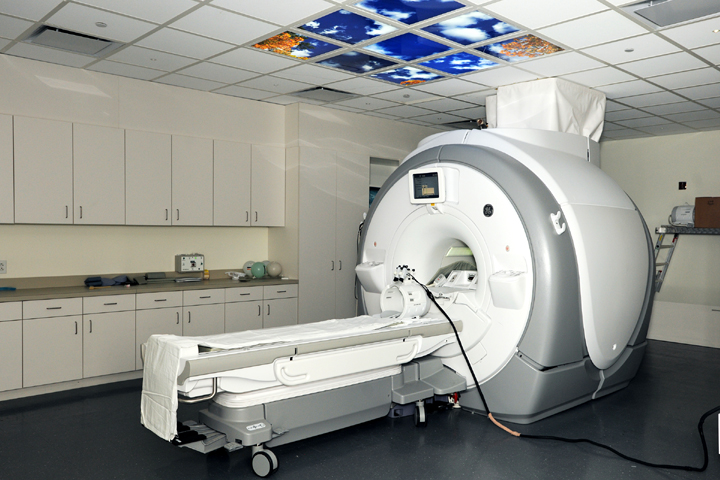
Ultimate goal is better understanding, quality of life for warfighters
The National Intrepid Center of Excellence promotes warfighter brain health during Brain Injury Awareness Month
Article
3/28/2019
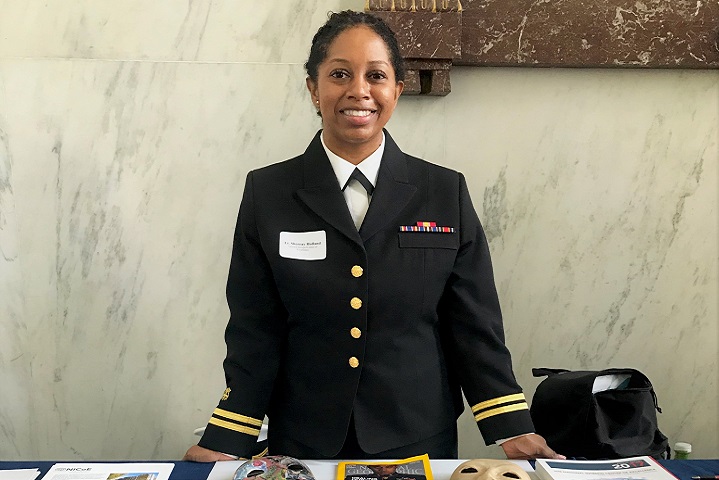
For the fifth year, the NICoE hosted a TBI resource fair at Walter Reed National Military Medical Center
Traumatic brain injury: Stories of strength and resilience
Article
3/19/2019
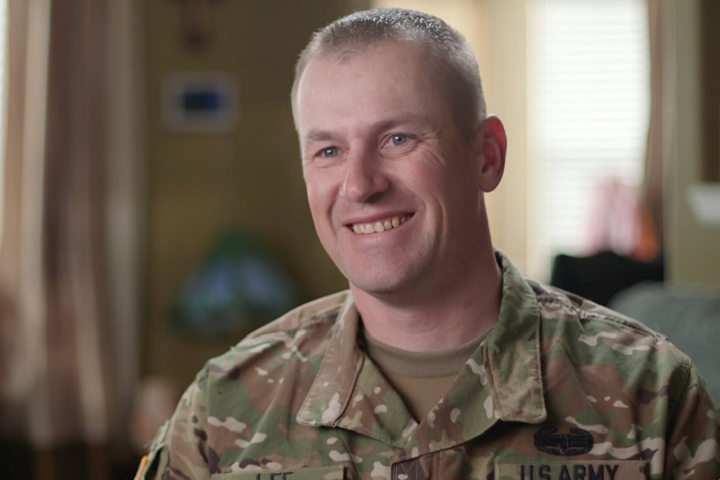
Not everyone with a TBI experiences the same signs and symptoms
Defense and Veterans Brain Injury Center releases new concussion screening tool
Article
3/15/2019
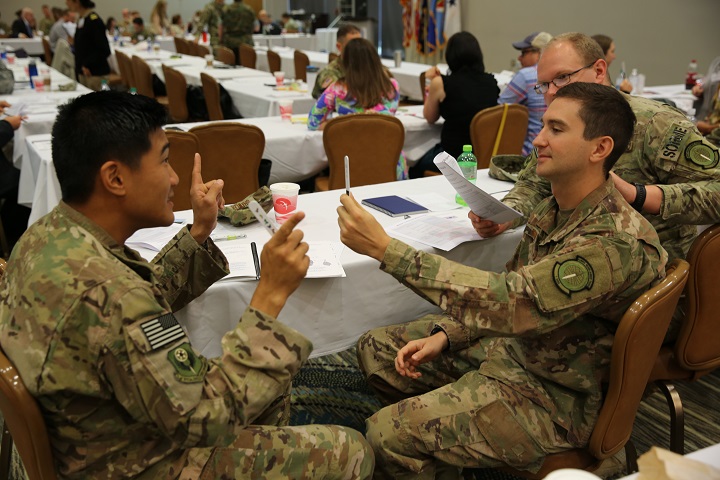
Providers who screen patients for concussion now have a new and improved tool
Concussion: Know the Symptoms
Video
3/12/2019

A racquetball game goes wrong when one player slips and hits his head. He thinks he's OK and his partner isn’t sure what to do about it.
DoD recognizes Brain Injury Awareness month, promotes warfighter brain health
Article
3/1/2019
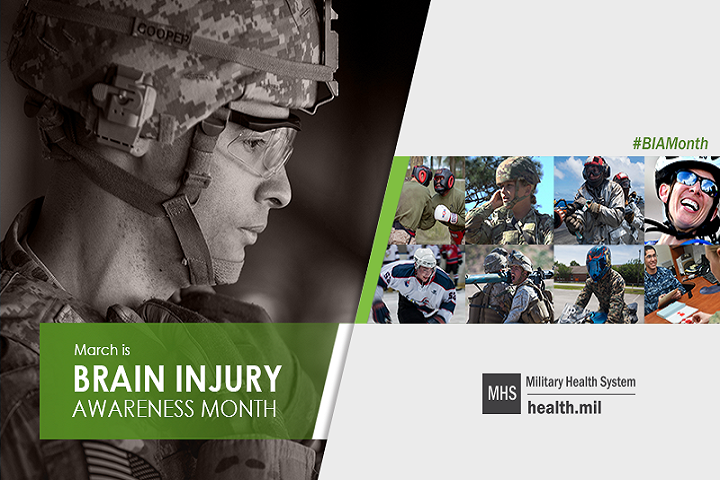
Traumatic Brain Injury is a signature injury of current conflicts
Traumatic Brain Injury/Psychological Health
Congressional Testimony
1/25/2019
S. 3000, SAC Report for FY 2017, 114-263, Pg. 193





















.png)












No hay comentarios:
Publicar un comentario